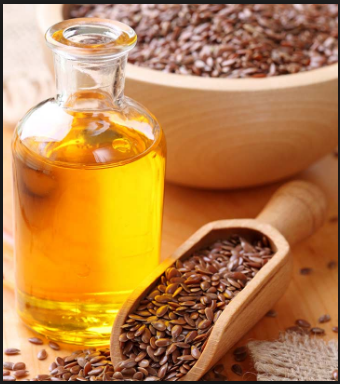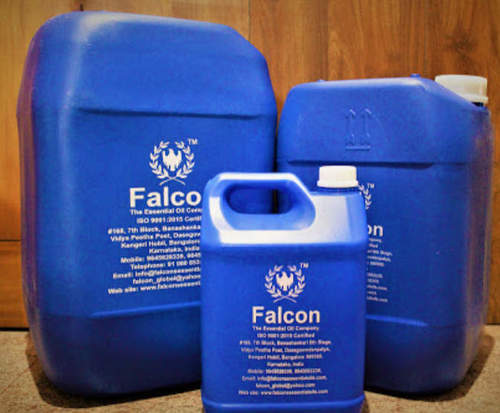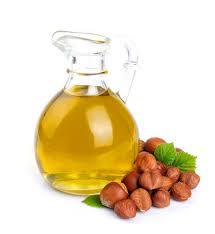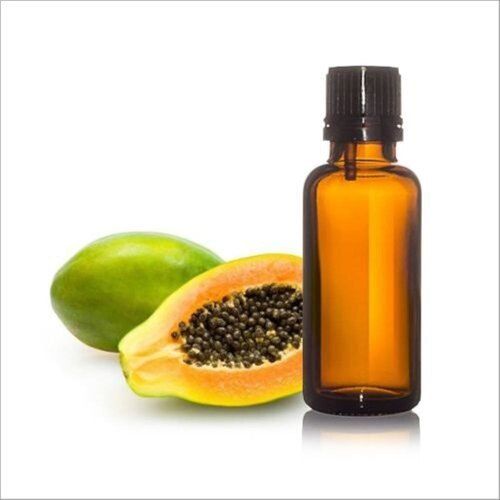
Flax seed oil
Product Details:
- Appearance Golden Yellow
- Raw Material Seeds
- Volume Kilogram(Kg)
- Storage Store in Cool
- CAS No 8001-26-1
- Odour: Nutty
- Purity 100% Natural
- Click to View more
Flax seed oil Price And Quantity
- 1 Kilograms
- 5.65 - 9.00 USD ($)/Kilograms
Flax seed oil Product Specifications
- Pure Essential Oils
- 1 Years
- Store in a cool dark place away from sunlight
- Kilogram(Kg)
- 8001-26-1
- 100% Natural
- Store in Cool
- Golden Yellow
- Nutty
- Seeds
Flax seed oil Trade Information
- Bangalore Airport & Nhava Sheva Port
- Cash Advance (CA) Cash in Advance (CID) Letter of Credit at Sight (Sight L/C) Telegraphic Transfer (T/T) Letter of Credit (L/C)
- 25000 Kilograms Per Year
- 3 Days
- Yes
- Free samples are available
- 250 Gms, 500 Gms, 1 Kg Aluminium bottles 5 Kg, 20 Kg, 200 Kg HDPE Drums
- Asia Australia Central America North America South America Eastern Europe Western Europe Middle East Africa
- All India
- ISO 9001 : 2015 CERTIFIED
Product Description
Flaxseed oil, also known asnaturallinseed oil is derived from the seeds of the Flax plant. It isextracted by thecold pressed method, and is clear to yellowish in colour. Flaxis a member ofthe genus Linum in the family Linaceae. It is native to India.Flax is an erectannual plant growing to 1.2 m tall, with slender stems. Theleaves are glaucousgreen, slender lanceolate, 20-40 mm long and 3mmbroad. The flowersare pure pale blue, 15-25mm diameter, with fivepetals; they can also bebright red. The fruit is a round, dry capsule 5-9 mmin diameter, containingseveral glossy brown seeds shaped like an apple pip,4-7mm long.
Nutritional benefits of Flax Seed oil
Flax seed oil is highly recommended for the general well being and wholebodynutrition and is considered to be nature's richest source of omega-3fattyacids that are required for the health of almost all body systems.
It is rich in alpha-linolenic acid (ALA), an essential fatty acid (EFA)thatappears to be beneficial for a variety of health conditions. The bodycannotmanufacture it. EFAs are precursors to prostaglandins. Flax Seed Oilcontainsomega-6 and omega-9 essential fatty acids, B vitamins, potassium,lecithin,magnesium, fiber, protein, and zinc and also provides approximately50% moreomega-3 oils than what you could get from taking fish oil, minus thathorrible"fishy" after taste. It has a pleasant nutty flavor andcontains nocholesterol. It is important to maintain an appropriate balance ofomega-3 andomega-6 fatty acids in the diet as these two substances worktogether topromote health. These essential fats are both examples ofpolyunsaturated fattyacids, or PUFAs. An inappropriate balance of theseessential fatty acidscontributes to the development of disease, while a properbalance helps maintainand even improve health. A healthy diet should consist ofroughly two to fourtimes more omega-6 fatty acids than omega-3 fatty acids.Flaxseed oil alsocontains a group of chemicals called lignans that play a rolein the preventionof cancer. Lignans are substances known to stimulate immuneactivity.
Some nutritionists, researchers, and scientists believe that it could bethemost important health-promoting supplement next to a multi-vitamin.Nearlyevery system in the body can benefit from Flax seed oil's naturalproperties,including the cardiovascular system, immune system, circulatorysystem,reproductive system, nervous system, as well as joints.
Unfortunately, our current diets do not come close to meeting our dailyEFA(essential fatty acids) requirements. The richest source of EFAs such asFlaxseed oil is rarely found in our regular meals. In addition, more typicalfoodslike red meats and egg yolks can actually encourage the body's productionofbad prostaglandins. Flax Seed oil can help restore the body's naturalbalanceof good and bad prostaglandins. Flax seed oil takes a bit of time tobeabsorbed into the body before the full beneficial effects begin,ranginganywhere from a few days to as many as six weeks, depending on youroverall well-being.Add Flax seed oil to your diet and watch what it will do foryou! One of thelatest buzzword in the health care industry today is Flax seedoil.
It's important to buy high-quality flax seed oil as it is prone torancidity.Like any oil, Flaxseed oil may turn rancid if it is not stored in therightconditions. Flaxseed oil requires special packaging because it iseasilydestroyed by heat, light, and oxygen. Light and oxygen will slowlybreakdownthe essential fatty acids. The oil should be refrigerated to helpextend itsshelf life. The highest quality flaxseed products are manufacturedusing freshpressed seeds, bottled in dark or opaque containers, and processedat lowtemperatures in the absence of light
Other Products in 'Cold Pressed Oils' category
 |

 08045475305
08045475305





